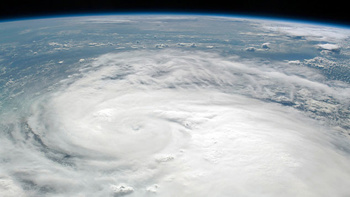The biggest reform of children’s care in New Zealand is officially underway.
The Government today launched the Ministry of Vulnerable Children or Oranga Tamariki, which will formally take over from Child, Youth and Family tomorrow.
LISTEN: Anne Tolley: New ministry 'absolutely essential' for NZ's most vulnerable kids'
“The new ministry puts children and young people’s safety and wellbeing first,” Social Development Minister Anne Tolley said.
“It will work with families and whānau to ensure children and young people get access to the care and support they need, and will ensure they have a say in decisions that affect them.
“This is what young people have told me they want.”
The overhaul follows a year-long review. At the heart of the changes is a greater focus on early intervention and preventing trauma, giving children a greater say in their care, and working more closely with families to keep children in their homes.
The age for state care is being raised from 17 to 18, and will later rise to 21.
“This is the start of a four to five-year major transformation programme to build a more child-centred care and protection system, focusing on harm and trauma prevention and early intervention, rather than crisis management,” Tolley said.
SEE ALSO: Scepticism remains as new ministry for vulnerable kids opens
Children’s Commissioner Andrew Becroft said the reforms were the best chance in a lifetime to improve the lives of the children who needed help.
His office had long advocated for a more child-centred approach by the state, he said.
“Oranga Tamariki has been set up to do that so I’m hopeful it is starting on the right path.
“Unless we genuinely seek children’s voices and their views on what’s best for them, we can’t possibly give them a real opportunity for a good life.”
Becroft said the agency alone could not solve what he described as “pockets of permanent third-generational disadvantage” in New Zealand.
“It will take the whole community, other service providers and a combination of government agencies. When things go wrong for a child we cannot just blame Oranga Tamariki.”
It was important that the services did not deteriorate during the changeover between CYF and the new ministry, he said.
“The new agency must not drop the ball. It has to ensure these children thrive. We need the new agency to listen to them and give them the best possible chance in life.”
High levels of re-abuse and re-victimisation prompted the review by an Expert Advisory Panel in 2015.
The panel found the existing system to be fragmented, lacking in accountability and without a common purpose. Children in care had poor long-term outcomes in health, education, employment and in living crime-free lives.
There are currently around 230,000 New Zealand children under 18 at significant risk of harm during their childhood, and around six out of 10 of this group were likely to be Māori.
Each year about 60,000 children were notified to CYF, and at any point in time about 4900 New Zealand children were in statutory care.
RECORD NUMBERS
New figures released on Wednesday, however, showed that the number of children in CYF custody had now risen from 5159 to 5453. That included an 8 per cent rise in the number of Maori children in care.
The trend showed that child services were underfunded in New Zealand, the Green Party said.
“We haven't seen evidence that the new Ministry for Vulnerable Children … has the resources and funding to deal with existing caseloads properly let alone increased numbers of children in care,” social development spokeswoman Jan Logie said.
Logie said the number of youth justice beds had been reduced since 2014 despite increasing demand, and children were being locked up in police cells instead.
Take your Radio, Podcasts and Music with you









